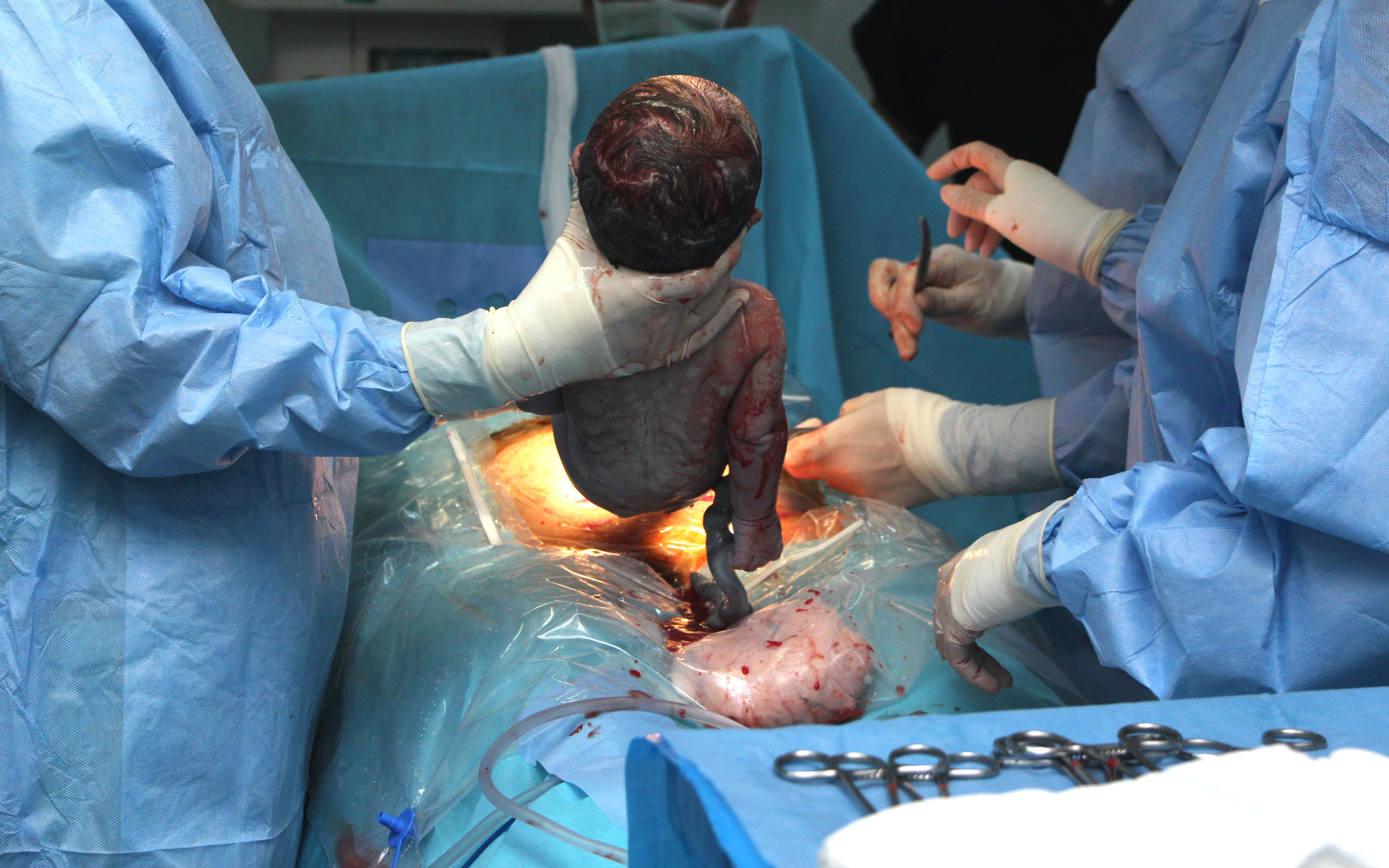
A new study published in the National Bureau of Economic Research has unearthed interesting data on the nature of C-sections performed in hospitals. The study found that obstetricians were more likely to give Black women unnecessary cesarean sections. The study, one of the largest exploring this issue, included nearly 1 million births in 68 hospitals.
C-sections put women at greater risk for postpartum complications like increased difficulty breastfeeding, longer recovery times, and ruptured surgical wounds.
More from CafeMom: Black Women Explain the Positive Difference Having Black Doctors Made in Their Pregnancies
In addition to racial disparities, the C-sections also have financial implications.
The study found that even when Black and white mothers had similar medical histories, saw the same doctors, and gave birth in the same hospital, they were still 20% more likely to deliver via C-section, The New York Times reported. In addition to racial disparities, C-sections also have financial implications. The surgeries on Black patients were more likely to happen when the hospital had no scheduled C-sections and empty operating rooms.
When the operating rooms were booked with other patients, then Black and white women had the same likelihood of cesarean delivery. “If Black moms are better candidates for C-section, then you should see them getting sent for C-section more even when there is limited capacity,” Molly Schnell, an economist at Northwestern and one of the study authors told The New York Times.
The rate is almost double for Black mothers.

Instead, the disparity between Black and white patients increased with empty operating rooms: 8% of healthy Black women delivered via C-section compared to 4.8% of healthy white women.
More from CafeMom: ‘How Did We Fail You?’ People React to Olympian Tori Bowie Dying Alone During Childbirth
This difference suggests there’s a financial incentive at work for hospitals.
Dr. Ijeoma Okwandu, an obstetrician in Atlanta, said this study was unique because it also followed the money.
“That really is the driver of so much that happens in medicine,” she said.
Dr. Janet Currie, a health economist at Princeton University shared that the same is true for other medical procedures as well. “There is lots of evidence that if a hospital has a CT scan or an MRI they like to keep it busy,” Dr. Currie said. “If you have an operating room set up to do a C-section, they like to keep that busy too.”
With private insurance plans, the cost of a C-section is around $17,000 versus $11,500 for a vaginal birth, according to The New York Times.
The study analyzed medical records of more than 993,000 women who gave birth between 2008 and 2017.

It included women who came into the hospital already in labor and not those who had a scheduled C-section. It concluded that Black women were 25% more likely to receive C-sections than white women. In addition to financial incentives, researchers cite belief systems, including racial biases, as a factor in the number of C-sections performed on Black parents.
Doctors may be worried about adverse childbirth outcomes. Black women may feel less comfortable in pushing back against medical interventions, and physicians may take the concerns of Black women less seriously. Multiple studies have shown all of these phenomena.
Researchers acknowledged that medical records don’t always include the reasons why a doctor may have opted for a C-section.
Still, the information about the empty operating rooms spoke to something outside of medical necessity. The new study found that the surgeries performed when operating rooms were empty resulted in more surgical complications. The recovery resulted in more time the hospital, increasing the bill. A C-section, Dr. Okwandu said, “is taken as something that is common, but it’s not without risk.”




